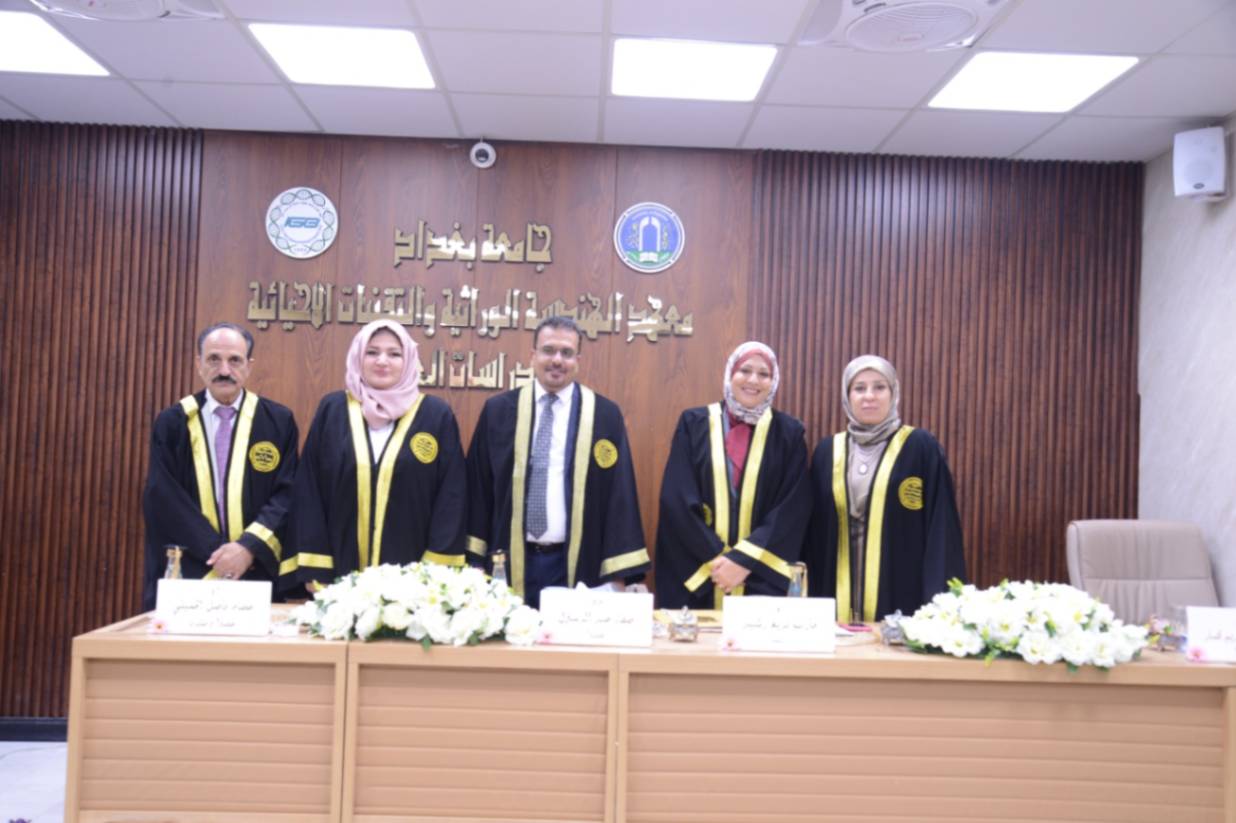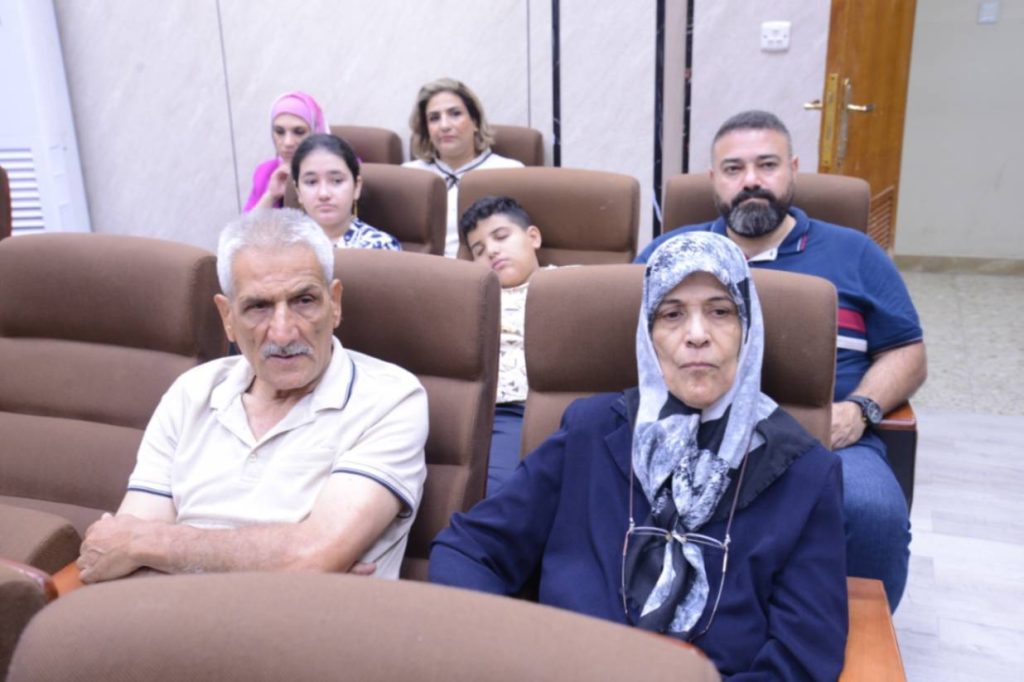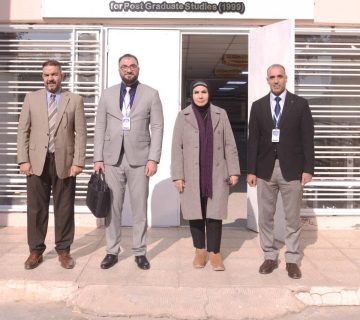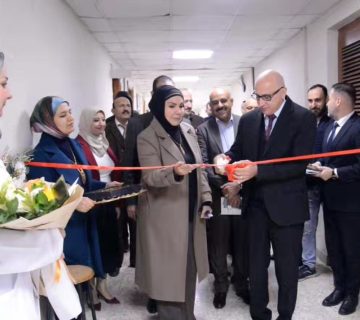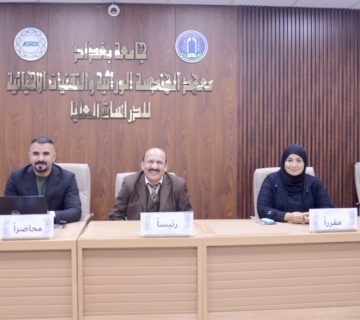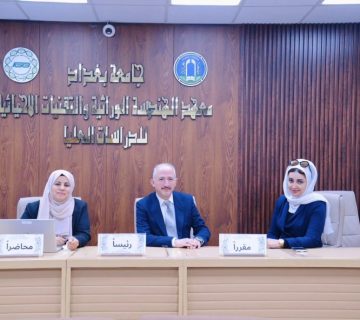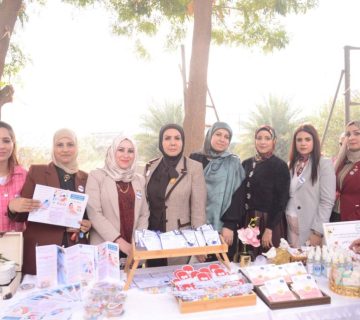The Institute of Genetic Engineering and Biotechnology for Postgraduate Studies, University of Baghdad, discussed the master’s thesis of the student Arwa Mahdi Nasser, entitled:
“The Effect of Oxidative Stress Induced by Certain Heavy Metals and Its Relation to Genotypes and Gene Expression of the Metallothionein Gene in a Sample of Iraqi Patients with Kidney Failure.”
The discussion took place in the institute’s seminar hall, under the supervision of Prof. Dr. Essam Fadel Alwan.
The study aimed to investigate the impact of oxidative stress and some heavy metals, as well as the single nucleotide polymorphism (SNP) of the metallothionein gene rs28366003 A>G, gene expression, and selected biochemical parameters in a sample of Iraqi patients with chronic kidney disease (CKD).
The results showed that the serum concentrations of oxidative stress markers—malondialdehyde (MDA) and glutathione (GSH)—were assessed using the enzyme-linked immunosorbent assay (ELISA). The mean serum MDA levels were significantly elevated (p ≤ 0.01) in CKD patients (255.39 ± 8.67) compared with the control group (125.04 ± 1.94). Meanwhile, the GSH levels showed a marked decrease in CKD patients (11.76 ± 0.14) compared with the control group (22.32 ± 2.72).
The study also revealed that serum urea and creatinine levels were significantly increased (p ≤ 0.01) in the patient groups compared with the control group.
Moreover, serum phosphate levels were significantly elevated (p ≤ 0.01) in CKD patients (4.89 ± 0.14) compared with the control group (2.96 ± 0.07). In contrast, serum sodium levels were markedly decreased in CKD patients (130.42 ± 0.62) compared with the control group (140.78 ± 0.67).
The study concluded that there was a noticeable reduction in the expression level of the metallothionein gene among patients compared with the control group. This indicates that decreased expression of the metallothionein gene is associated with the progression of chronic kidney disease.

